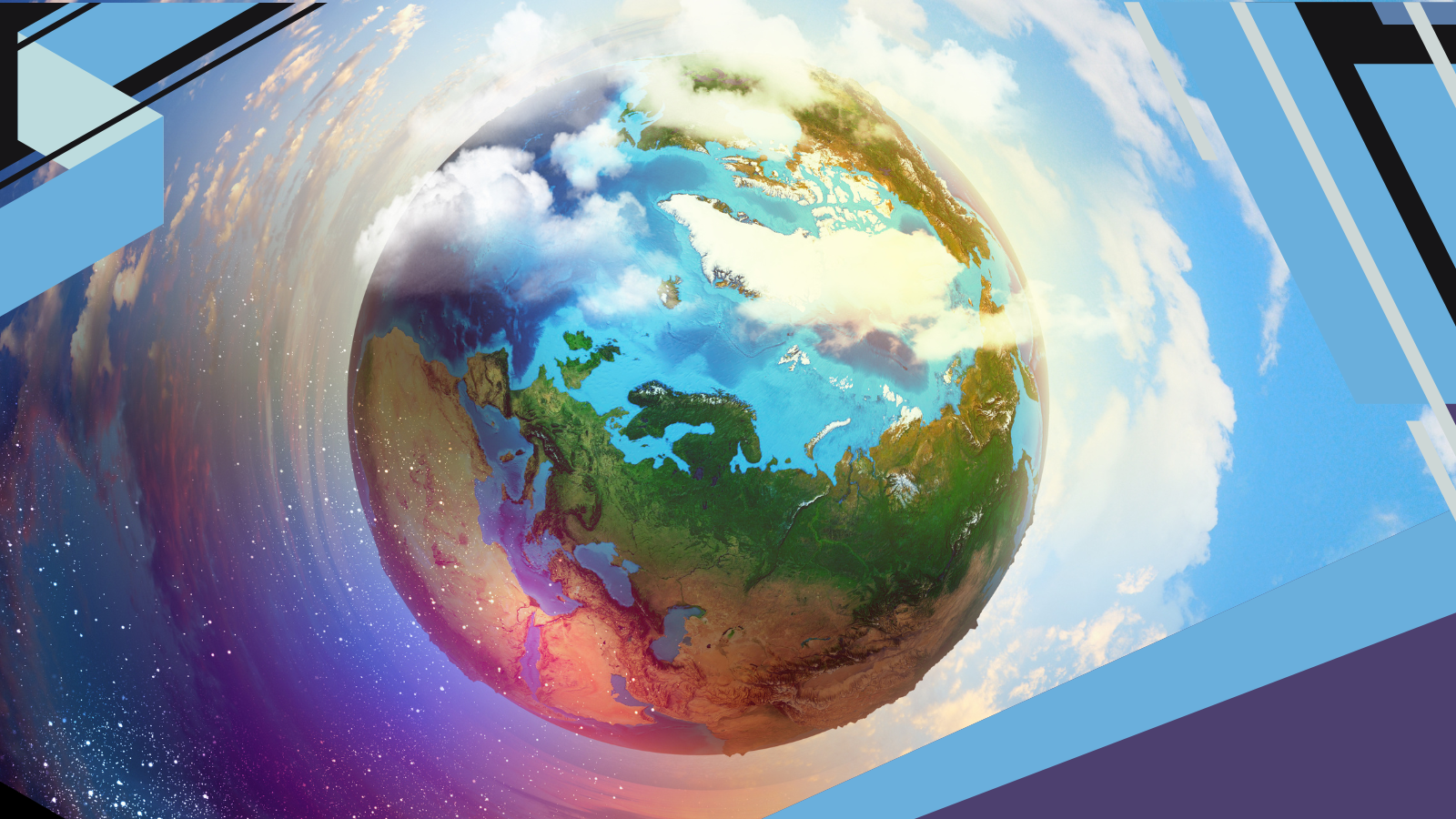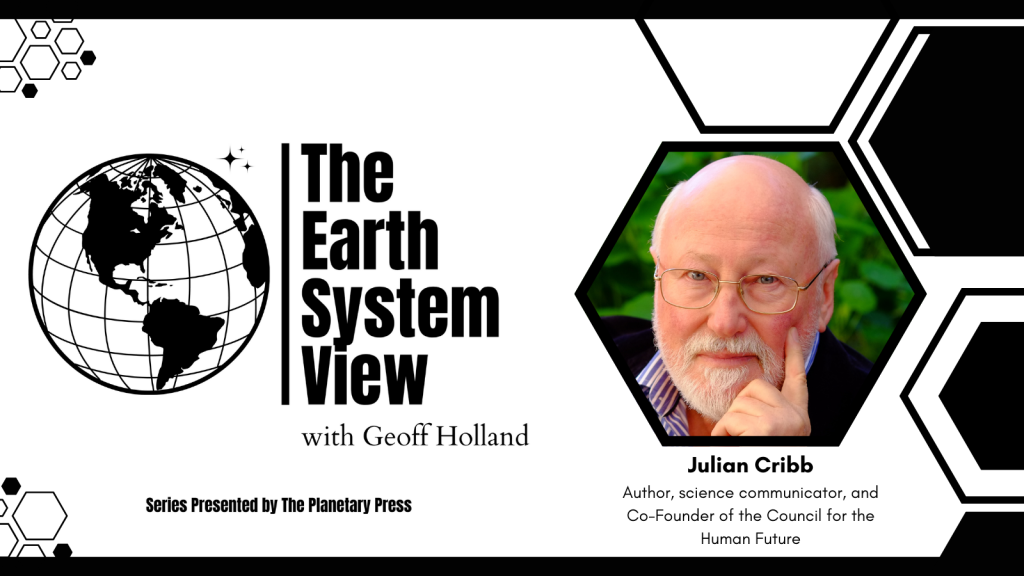
A best-selling author and journalist based in Canberra, Australia, Julian Cribb has been reporting on science and agriculture for decades. He has become increasingly concerned about the human culture’s inability to recognize its own peril where our Earth’s living systems are concerned. Now, Julian Cribb and his colleagues at the Council for the Human Future are championing a new ‘Big Picture’ approach to planetary stewardship called the Earth System Treaty that is designed to attract the attention and commitment of concerned people in every corner of our planet.
Geoff Holland: What is an Earth System treaty? And what are its core principles?
Julian Cribb: An Earth System Treaty is a worldwide legal agreement, committing everyone who signs it to work to protect a habitable planet for all of us, for our grandchildren, and for generations far into the future. Basically, it seeks to overcome the ‘Ten existential MegaRisks’ that loom over humanity and our living world, the only world we have. It seeks to repair the damage to our Earth and prevent new human-caused disasters from occurring. It assures that no one threat gets over-accentuated and that all threats to our survival are addressed equally and together because they are all connected.
GH: What is it about this point in human history that makes an Earth System Treaty so essential to the future of life on Earth?
JC: Scientists, the United Nations, and some governments around the world have acknowledged that we are facing the greatest crisis in all of human history. It’s basically ten massive threats all coming together at the same time, all feeding off one another. Combined, these threats are putting human civilization at unprecedented risk of catastrophic failure. They may even endanger the future of our species. That’s what makes the need for action so urgent.
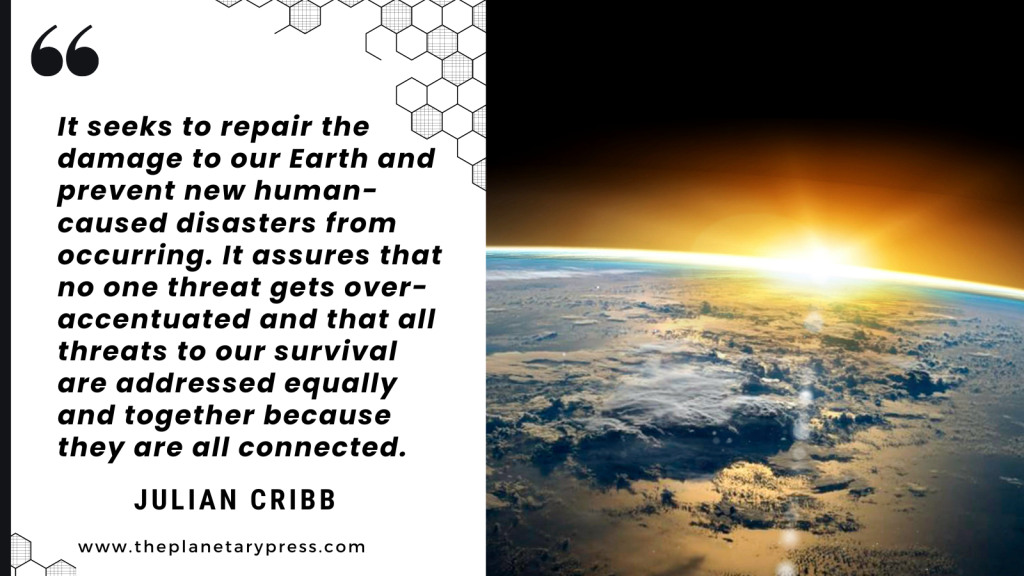
GH: Is the United Nations the most appropriate planetary institution for implementing the Earth Systems Treaty?
JC: The United Nations is the only place in the world where you can get a global treaty signed. There is nowhere else to go. Basically, it has to be in a form the nations of the world can agree on. We are also calling on every individual citizen of planet Earth to sign this treaty and commit themselves to a habitable Earth for their grandkids. It’s really important that it is not just left to governments because national leaders often have selfish motives that ignore the good of humanity. We want individual citizens to sign this treaty. This will be the first true act of global democracy. It will be the first time everybody on Earth has a vote on their real future. If citizens of the world support the Earth System Treaty voluntarily, if enough of them do that, it will show that the human family wants to survive, that we want to repair the mess that we’ve made of the only home we have.
GH: How do we compel support for an Earth System Treaty from the politically powerful whose self-interest defines our current winner-take-all economic system?
JC: Political power and economic power depend on the existence of a thriving civilization to support them. If human civilization collapses, money will have no value, and there will be no political power. Those things will evaporate. Even the rich and the powerful will have to acknowledge at some point that we must have a stable, habitable Earth that we can all inhabit into the future. Sooner or later, the rich and powerful will be obliged to acknowledge that if they undermine the stability of the planet and human life’s place on the planet, they will also destroy themselves. Eventually, most of them will have to come around to the understanding that we need a universal agreement to sustain humans on Earth.
GH: What would induce our world’s nation-states to adopt an Earth System Treaty?
JC: Nation states spend an awful lot of time sparring and scrapping with one another, arguing over very small points of difference. Nations make war, often over the insignificant things. We have to get to a place where all humans have a chance to agree on a sustainable pathway into the future. Giving everybody a vote on the Earth System Treaty sends an unmistakable message to the governments of the world that this is what the people of the world want and that they will be out of step with humanity at large if they don’t go along with it. If enough people support an Earth System Treaty, every politician on Earth will have to give serious attention to it.
GH: For thousands of years, humans have assumed they are above and superior to nature, with an obligation to exploit the natural world without limits. Does our own survival demand that humans get past that kind of thinking?
JC: Every human survives within the finite boundaries of the living systems of our planet. If those boundaries break down, if there isn’t enough water, for example, if the forests all disappear, if the food supply fails, if the air that we breathe is too toxic, then we humans cannot survive. So, we all have to acknowledge that we must maintain ourselves within the boundaries of the natural systems we all depend on. That is the essence of an Earth System Treaty.
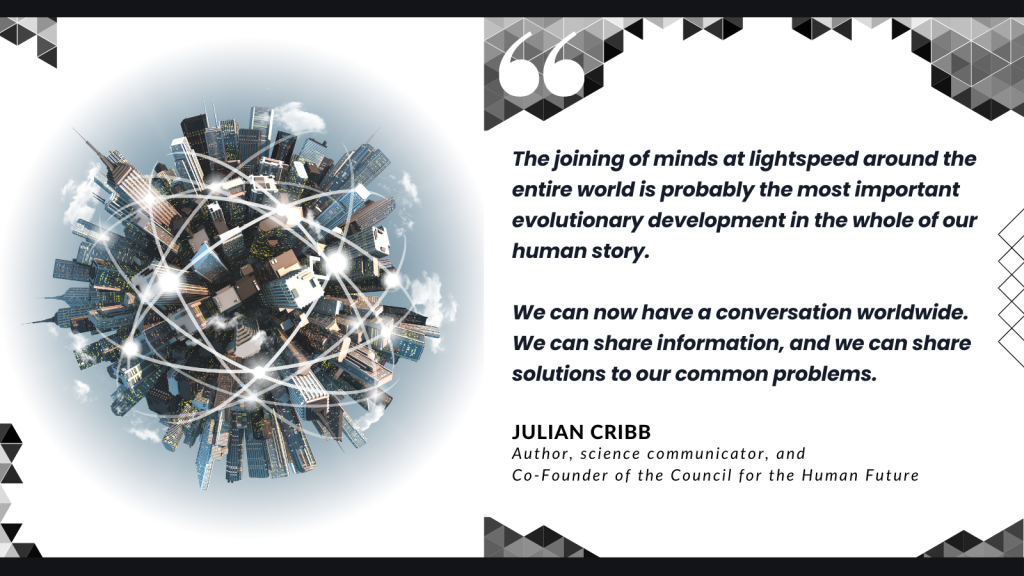
GH: Like never before, the human family across our planet is linked in real-time by the internet and social media. How does that potentially add up to a transformative cultural pathway shaped by cooperation and common purpose?
JC: The joining of minds at lightspeed around the entire world is probably the most important evolutionary development in the whole of our human story. We can now have a conversation worldwide. We can share information, and we can share solutions to our common problems. Now, we can rely on the internet, social media, and our ability to communicate with one another, one-on-one or in groups, to find common purpose. Basically, we must get past our tribalism; to forget that we come from separate nations or groups or cultural identities. We must come to understand that we share a common fate. We are all bound together, one humanity on one planet. We need to develop one mind to become a species that thinks together about its future and thinks about how together we can secure that future.
Stay tuned for more of The Earth System View series!
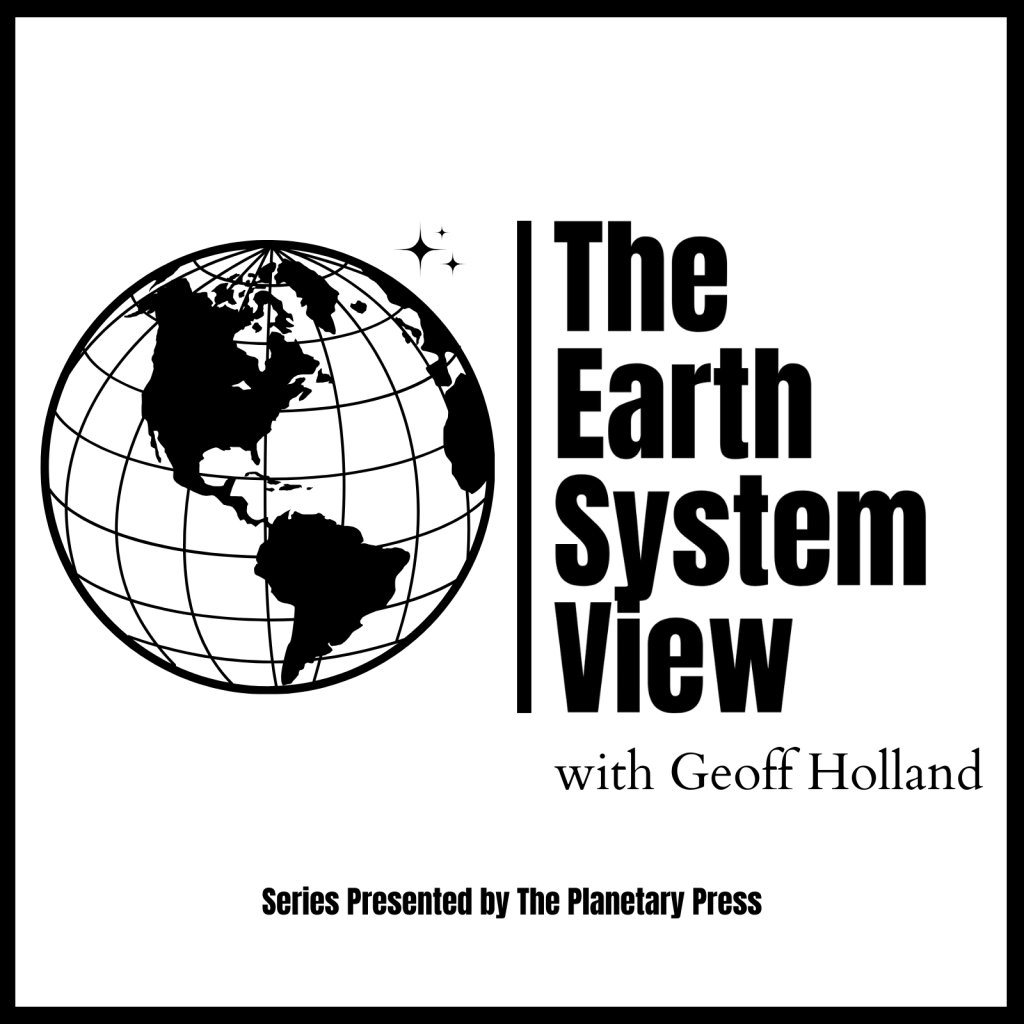
Hosted by author and veteran Stanford MAHB journalist Geoff Holland, The Earth System View explores the progressive idea of an Earth System Treaty as a solution to our planetary challenges.

